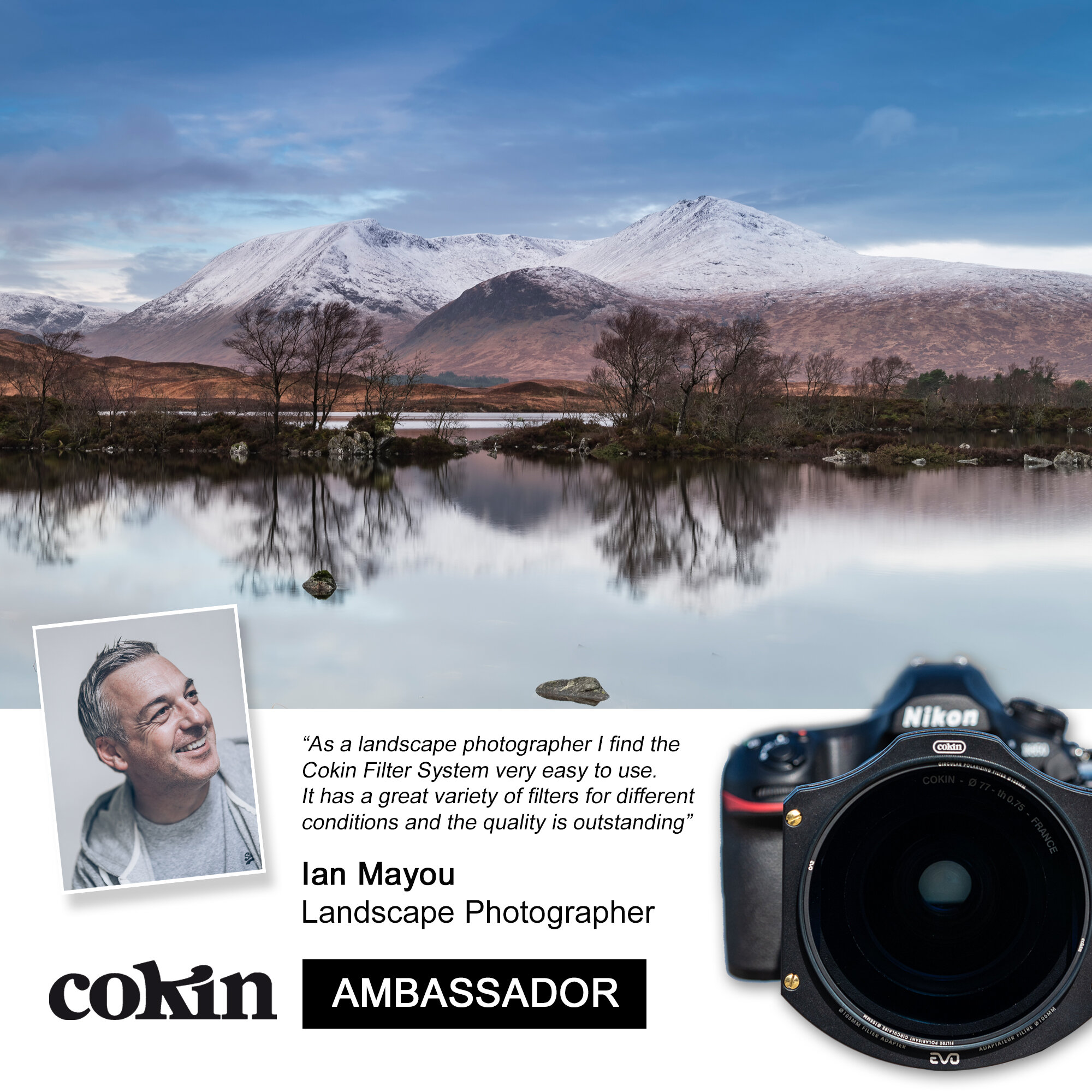Cokin Filter System
Cokin make a great filter system for us landscape photographers where quality and durability is of upmost importance.
One of the things that I always cover on my landscape photography workshops is filters and after we've been through the how, when and why to use them, the first question that usually follows is which ones to buy.
There is a dizzying array of filters on the market and with different manufacturers using different terminology, it's hardly surprising that those new to the subject find themselves in need of a bit of guidance.
Let's start with the easy part. If you have paid to come on a workshop you probably have more than a passing interest in landscape photography so I always recommend getting the best you can afford, which in my opinion is Cokin filters. I have been using Cokin since I first started focussing on landscape photography and although there is a lot more choice now than there was then, the simple Cokin system has stood up to the years of abuse I've put it through and the filters consistently deliver the excellent image quality I need.
Where things can get complicated is in the choice of filters, particularly with graduated neutral density filters (which is a bit of a mouthful so let's call them grads for short). For those who aren't familiar with them, grads aren't complicated, they are filters which are half clear and half tinted with a neutral tint. The idea being that in situations when the sky is a lot brighter than the foreground (sunrise or sunset for example, when the difference in brightness is often greater than the camera can capture) the filter is positioned in front of the lens so the dark half covers the sky with the clear part over the foreground thus balancing the difference between the two to a level that the camera's limited dynamic range can cope with.
That's fairly simple, so what's the problem? Well, 'which graduated filter should I get' is not a particularly easy question to answer as the choice is dependent on what you will be photographing and crucially how much you want to spend.
Like most filters, ND graduated filters come in various strength tints but they also come in different graduations, usually soft or hard. Soft being a gentle graduation between the tinted and clear areas while hard is a more sudden change. The problem has always been that there is no 'one size fits all' graduated filter... Hard grads are suited to scenes where the horizon is clearly defined, the coast for example, where it's easy to position the filter along the horizon, while soft grads are ideal for situations like mountainous landscapes where there is no clear horizon and the soft graduation blends seamlessly into the mountains. If you take soft grads to the coast however, the soft transition won't be strong enough to cope with bright areas near the horizon, conversely using hard grads for a mountainous scene will leave an unnatural dark line across the mountains. So, when somebody asks which the best single filter is to start with, or something along those lines, I have to go into a long and windy explanation of the strengths and weaknesses of each.
Portland Bill, Dorset
COKIN NUANCES Extreme 3-Stop ND filter ND8
COKIN NUANCES Extreme Soft Grad filter S-GND8
Until that is, the introduction of the Cokin filters medium grad, which as you've probably gathered is where this particular long and windy introduction was leading. The graduation of the medium grad, as you'd expect, is somewhere between hard and soft. Soft enough to avoid the dark lines associated with hard grads while still being hard enough to hold back bright areas near the horizon, the medium grad is perfect for those difficult situations where the horizon is visible but with something like a tree or building breaking it. They are also far easier to position than hard grads which have to be lined up carefully with the horizon to avoid leaving a tell-tale sliver of bright sky.
Personally I spend a lot of time at the coast so I've always used hard grads for the most part and on the odd occasion that I need them (it's not too hilly round here!) I use my soft grads, but since its introduction the medium grad has become my favourite bit of kit and is the closest thing to a one size fits all filter out there.
Nunace Extreme ND-Filters And Pouch













